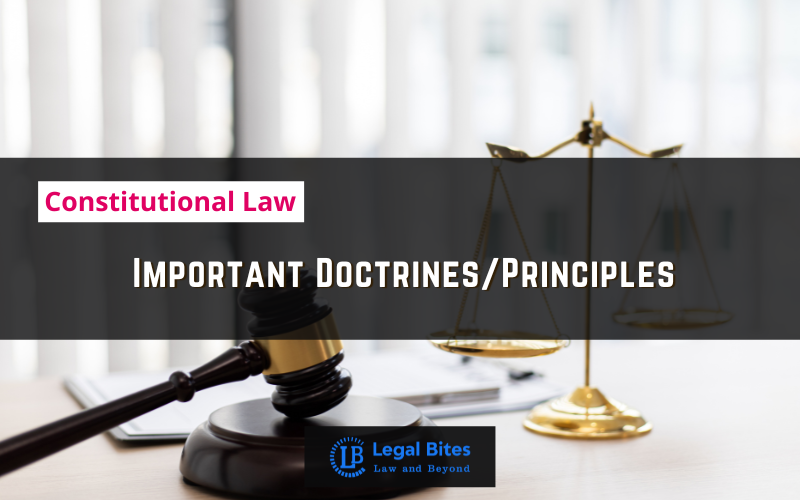Write a comprehensive note on the Constitutional position of the Indian President before and after the passing of the 42nd Amendment Act.
Find the answer to the mains question of Constitutional Law only on Legal Bites.;

Question: Write a comprehensive note on the Constitutional position of the Indian President before and after the passing of the 42nd Amendment Act. [BJS 1977] Find the answer to the mains question of Constitutional Law only on Legal Bites. [Write a comprehensive note on the Constitutional position of the Indian President before and after the passing of the 42nd Amendment Act.] Answer Article 74 of the Constitution establishes that there shall be a Council of Ministers, led by the...
Question: Write a comprehensive note on the Constitutional position of the Indian President before and after the passing of the 42nd Amendment Act. [BJS 1977]
Find the answer to the mains question of Constitutional Law only on Legal Bites. [Write a comprehensive note on the Constitutional position of the Indian President before and after the passing of the 42nd Amendment Act.]
Answer
Article 74 of the Constitution establishes that there shall be a Council of Ministers, led by the Prime Minister, to aid and advise the President of India. The President is required to act in accordance with this advice while exercising his functions. However, the dynamics of this advisory role have been significantly shaped by two key Constitutional Amendments.
The 42nd Amendment Act, 1976 explicitly made the President bound by the advice of the Council of Ministers headed by the Prime Minister. Prior to this amendment, Article 74(1) merely stated, “there shall be a Council of Ministers with the Prime Minister at the head to aid and advise the President of India in the exercise of his functions.” This phrasing left some ambiguity as to whether the President was obligated to follow the advice of the Council of Ministers. To eliminate this uncertainty, the 42nd Amendment clarified that the President “shall act in accordance with such advice.”
The 44th Amendment Act, 1978 further refined this relationship by adding a provision to Article 74(1), allowing the President to return the advice for reconsideration once. However, if the Council of Ministers reaffirms its advice, the President is then bound to accept it.
These constitutional provisions, along with subsequent amendments and parliamentary conventions, have cemented the binding nature of the Council of Ministers’ advice on the President. Unlike Article 163, which grants Governors discretionary powers, the President does not possess similar latitude. The President's discretionary powers are limited to specific situations, such as appointing the Prime Minister when no party commands a clear majority in the Lok Sabha or dismissing the Council of Ministers when it fails to prove its confidence in Parliament.
Important Mains Questions Series for Judiciary, APO & University Exams
- Constitutional Law Mains Questions Series Part-I
- Constitutional Law Mains Questions Series Part-I
- Constitutional Law Mains Questions Series Part-II
- Constitutional Law Mains Questions Series Part-IV
- Constitutional Law Mains Questions Series Part-V
- Constitutional Law Mains Questions Series Part-VI
- Constitutional Law Mains Questions Series Part-VII
- Constitutional Law Mains Questions Series Part-VIII
- Constitutional Law Mains Questions Series Part-IX
- Constitutional Law Mains Questions Series Part-X



